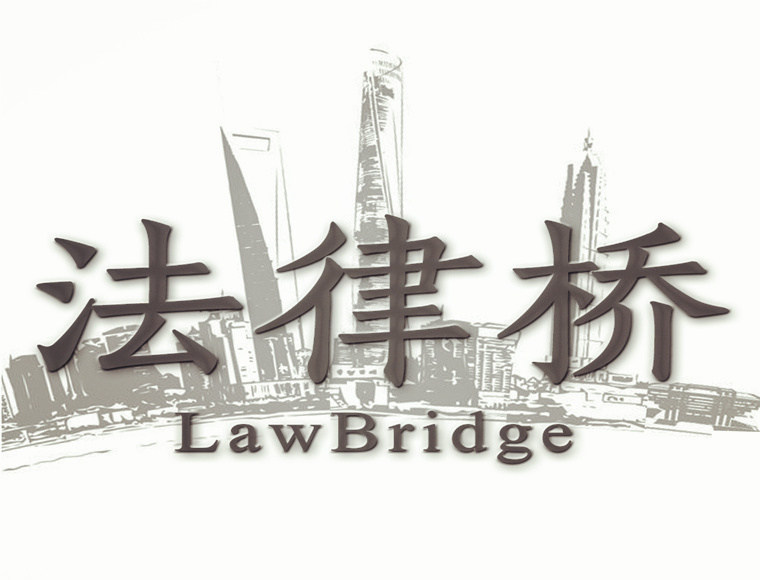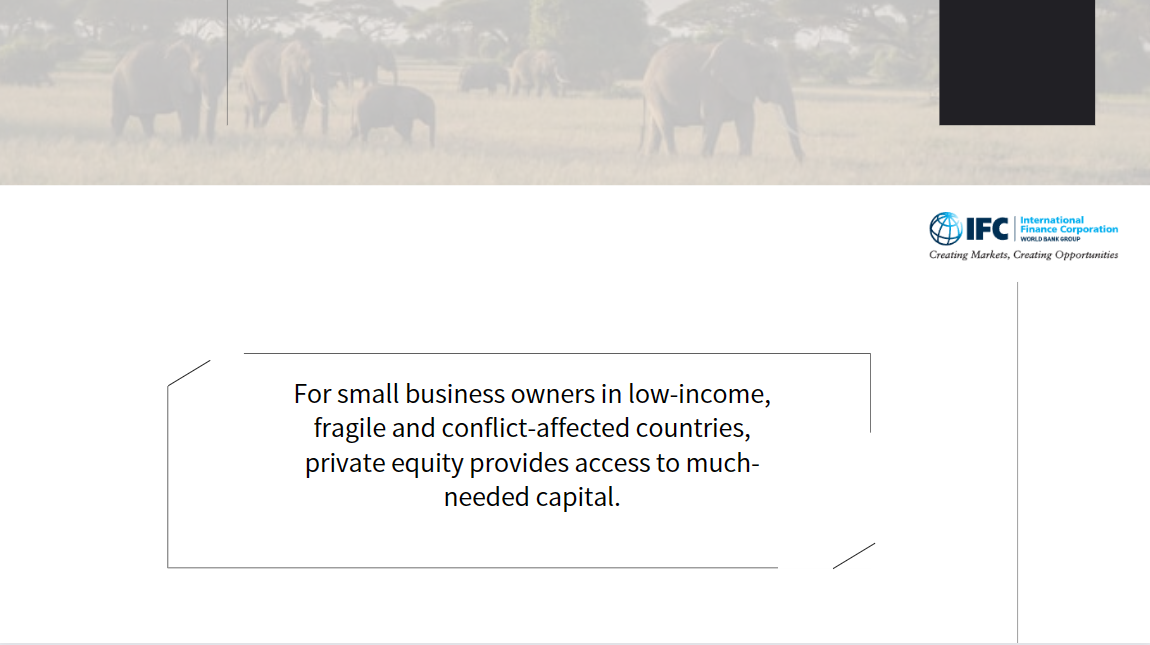Private Equity
Original Yang Chunbao Sun Tong The legal bridge between PE and TMT 2019-01-05
Foreword
In recent years, in the field of private equity investment, the gambling clause [1] agreed in relevant investment agreements has almost become standard. For example, Mengniu Dairy's management bet on Morgan Stanley and South Beauty's head Zhang Lan bet on CDH investment, etc., which are regarded as classic gambling cases in this field. There is great uncertainty in the future profitability of the target company, and once the target company's performance falls short of expectations, investors will not get investment income or even recover the investment principal. Therefore, investors usually regard the future performance of the target company as the main content of gambling. If the target company fails to achieve the performance target within the agreed time limit, the original shareholder of the target company (who is also a member of the management team of the target company) [2] will compensate the investor by means of cash compensation, equity compensation or equity repurchase.
If the target company fails to achieve its performance target, its original shareholders must compensate the investors, which has also been introduced into the major asset restructuring of listed companies, and has been clearly defined as a necessary measure [3]: "The counterparty should sign a clear and feasible compensation agreement with the listed company on the situation that the actual profit of related assets is less than the profit forecast". In recent years, it has further developed into two-way gambling, that is, not only the original shareholders of the target company need to make commitments to the performance of the target company, but also the actual controllers of listed companies make commitments to the original shareholders of the target company.
Yang Chunbao's lawyer team believes that the original shareholders of the target company are willing to "gamble" with the investors or acquirers, to a great extent, because they have full confidence in the future development of the target company, and more precisely, because they believe that the target company can continue to follow its development strategy and continue to achieve its due achievements under its operation and management, so as to achieve the goal of gambling. In most cases, investors are willing to inject capital into the target company or acquire the target company, to a large extent, because they are optimistic about the management team of the target company, so they will choose to continue to maintain the original management team after obtaining the equity of the target company, and even give equity incentives to the management team of the target company. In the field of private equity investment, in order to maintain the stability of the operation and management team, some investors even restrict the original shareholders from transferring the equity of the target company to encourage them to hold the equity of the target company continuously, and continue to operate the target company in an effort to enhance the value of the target company.
Since both parties to the investment agreement or merger agreement attach great importance to the management ability of the original shareholders of the target company, if the original shareholders of the target company lose the management right of the target company, should their gambling clauses with investors on the future performance of the target company be terminated?
The scientific name of "Gambling" is "Value Adjustment Mechanism" (VAM), which is vividly called "Gambling" because of its function of bidirectional valuation adjustment. It is an agreement between investment and financing parties for uncertain future situations. Usually, the future performance and time to market of the target company are the main contents of gambling, and the corresponding gambling clauses mainly include valuation adjustment clauses, performance compensation clauses and equity repurchase clauses.
China's laws have no clear legal provisions on the validity of gambling clauses. The Supreme People's Court made clear the validity of gambling between the original shareholders and investors of the target company in the retrial case of Haifu Investment, Gansu Shiheng and Hong Kong Diya, and denied the validity of gambling between the target company and investors.
Article 35 of the Measures for the Administration of Major Asset Restructuring of Listed Companies, where the assets to be purchased are evaluated or valued based on future income expectations, such as income present value method and hypothetical development method, and are used as pricing reference, the listed company shall separately disclose the difference between the actual profit and the profit forecast of the relevant assets in the annual report within 3 years after the implementation of major asset restructuring, and the accounting firm shall issue a special audit opinion on this; The counterparty shall sign a clear and feasible compensation agreement with the listed company on the situation that the actual profit of related assets is less than the profit forecast.
1. The mainstream view of the judiciary
In view of the fact that "gambling" is an imported product, although it is widely used in commercial practice, there is no clear legal definition of it under Chinese law. As mentioned above, the validity of the gambling clause is a consensus formed in judicial practice. So, is there any relationship between the gambling clause and the management right of the original shareholders of the target company? If so, does the management right of the original shareholders of the target company constitute the basis of the gambling clause? In other words, if the original shareholders of the target company lose the right to operate, does the gambling clause need to continue to be performed? In this regard, what kind of views do our judicial organs hold?
For this reason, Yang Chunbao's lawyer team searched the relevant cases related to gambling, and found that there are few judicial cases related to the above problems, but the mainstream judgment views of judicial organs can be summarized from them.
1.1 It is determined that the original shareholder has lost the management right of the target company, so it is impossible to realize the gambling goal.
In (2014) the merger dispute case of Shanghai Ruifeng Construction Engineering Co., Ltd. and other companies v. Shanghai Laolaisi Door Industry Co., Ltd. (hereinafter referred to as "Case 1"), the court found through trial that the investor and the transferor shareholders signed an asset acquisition agreement to jointly set up a limited liability company (hereinafter referred to as "the acquirer") to acquire and operate the target assets under the transferor's name. The premise that the investor pays the second asset transfer consideration to the transferor shareholder is that the acquirer has achieved the performance target for two consecutive years. The competing asset acquisition agreement also stipulates the transferor's shareholders' right to manage and operate the target assets, and that the transferor's shareholders should be the general manager of the acquirer. However, in fact, the investor failed to appoint the transferor's shareholders as the general manager of the acquirer as agreed, and refused to pay the second asset transfer consideration to the acquirer on the grounds that the business performance in 2010 and 2011 did not reach the agreement. However, the court held that the general manager is the actual operator of the company's operation, which is very important for the company's operation, and further determined that whether the transferor shareholder is the general manager of the acquirer and is responsible for operating the company is the prerequisite for realizing the gambling performance. Therefore, the court held that the investor's failure to appoint the transferor's shareholder as the general manager of the acquirer to manage the target assets directly affected the realization of gambling performance. Therefore, according to Article 45, paragraph 2 [1] of the Contract Law, the investor should bear the liability for breach of contract.
Therefore, the court held that the gambling clause in the asset purchase agreement in dispute in this case was a contract with effective conditions, and found that the investor did not allow the transferor shareholders to operate the target assets, which was an act that hindered the realization of the gambling goal. As a punishment for the investor's breach of contract, it should be regarded as the partial realization of the gambling goal (because the profit of the target assets is uncertain, even if the transferor shareholders can obtain the management right, they may not be able to realize the gambling goal, so it cannot be considered that all of them are realized).
1.2 If the original shareholders have the right to operate the target company, they should continue to perform the gambling clauses.
In (2016) Anhui Venture Capital Fund Co., Ltd. and Zhu Jinyuan and Peng Qingrong Company's capital increase dispute case (hereinafter referred to as "Case 2"), the investor sued the original shareholders of the target company to the court on the grounds that the target company failed to achieve the profit target in the Capital Increase and Share Expansion Agreement and failed to list in China within the agreed time limit. As the original shareholder of the defendant, he submitted to the court the shareholders' meeting resolution that the investee suspended the positions of chairman and general manager, trying to prove that he had been deprived of the management right of the target company. Therefore, the failure of the target company to achieve its profit target and go public was not caused by its poor management, so it was not necessary to fulfill the gambling clause. However, the evidence was not recognized by the plaintiff in the cross-examination process and the defendant did not provide the supporting evidence of the shareholders' list at that time. Therefore, the court did not accept the evidence, but determined that the defendant was still the actual controller and manager of the target company, and he should bear the main responsibility for the operating conditions of the target company. Therefore, the defendant should be responsible for the target company's failure to achieve the profit target caused by its poor management. In the end, the court supported the plaintiff's claim, ordered the original shareholder as the defendant to fulfill the gambling clause in the relevant investment agreement, repurchased the shares of the target company held by the investor and gave the investor performance compensation.
1.3 It is determined that the original shareholders have not been interfered and hindered by the investors in exercising the management right of the target company, and should continue to perform the gambling clauses.
In (2015) E Wuhan Zhong Min Shang Chu Zi No.00301 Contract Dispute Case between Valin Jin Shan (Hunan) Venture Capital Co., Ltd., Beijing Ruifeng Investment Management Co., Ltd. and Wang Hongying (hereinafter referred to as "Case 3"), the court found through trial that both the original defendant gambled on the operating performance of the target company in the investment agreement, and agreed that the original shareholders of the target company should fulfill the obligation of share repurchase after the gambling failed. As a result, the original shareholder of the target company as the defendant failed to realize the gambling goal, but he argued that the investor controlled the voting rights and daily management rights of the target company after taking shares, and violated the stipulations of the articles of association of the target company in its business activities, which seriously interfered with the daily operation of the target company and caused losses of the target company. It believes that the investor's behavior improperly contributed to the achievement of repurchase conditions, and therefore refused to fulfill the obligation of share repurchase. However, The defendant failed to provide sufficient evidence to prove that his management right of the target company was seriously interfered by the plaintiff, which led to the loss of the target company in successive years. Therefore, the court did not support the defendant's claim, but determined that the defendant could normally exercise the management right of the target company, so he should be responsible for the profitability of the target company. Finally, the court ordered the defendant to fulfill the obligation of share repurchase to the plaintiff according to the relevant investment agreement.
Coincidentally, in the case of (2015) Sanzhong Minzhongzi No.00923 Anshan Haihong Construction Machinery Co., Ltd. and Jingwei Textile Machinery Co., Ltd., the original shareholder and actual controller of the target company argued that the target company's three-year operating performance did not reach the gambling target or even lost money, which was caused by the investor's direct control of production and operation as its major shareholder and serious mistakes in decision-making. The investor should bear all the fault responsibilities, but the investor did not bear the relevant evidence.
Although the judgment results of the above cases are different, when the judicial organs try these cases, without exception, whether the original shareholders of the target company can normally exercise the management rights of the target company is regarded as the key to whether the gambling clauses should continue to be fulfilled. In case 1, it is precisely because the investor did not appoint the original shareholder as the general manager of the target company as agreed, so the court found that the original shareholder did not exercise the management right of the target company, and finally supported the original shareholder's claim. In case 2 and case 3, the original shareholders bear the adverse consequences because they can't prove that their management rights have been deprived or interfered. Imagine, assuming that the original shareholders can prove that they have been deprived or unable to exercise the management rights of the target company normally, the judgment results should be quite different. Therefore, we understand that the mainstream view of the judiciary in the trial of gambling disputes is that once the original shareholders can't actually exercise or lose the management right due to the investor's reasons, or are seriously interfered by the investor in the process of exercising the management right, they should be "exempted" from the future operating performance of the target company, and the investor should not claim related rights such as equity repurchase and/or performance compensation with the gambling clauses that have lost the basis of performance.
Article 45 of the Contract Law of the People's Republic of China The parties may agree to attach conditions to the validity of the contract. A contract with effective conditions shall become effective when the conditions are fulfilled. A contract with conditions for dissolution shall become invalid when the conditions are fulfilled. If the party improperly prevents the conditions from being fulfilled for his own interests, it shall be deemed that the conditions have been fulfilled; Unjustly contributing to the achievement of conditions is regarded as the failure of conditions.
2. The "chain set" of investors
As mentioned above, our country's laws do not make it clear that the original shareholders' right to operate is the basis for fulfilling the gambling clauses. In commercial practice, some investors or acquirers require the original shareholders to make a commitment to the future performance of the target company, and link the future performance of the target company with the equity/asset transfer consideration that the original shareholders can obtain. On the other hand, they exercise the right to choose the managers of the target company "according to law" or "in accordance with the Articles of Association", thus substantially depriving the original shareholders of their right to operate. Yang Chunbao's lawyer team is handling such a case:
In February, 2016, Xu, the controlling shareholder and general manager of Company B, signed the Equity Transfer Agreement with Company A, a listed company, to transfer the equity of Company B, and Company A became the controlling shareholder of Company B.. According to the equity transfer agreement, the equity transfer consideration will be paid in two phases, with 60% of the first phase paid after the signing of the agreement, and the remaining 40% should be linked with the target performance of Company B.. After the conversion of shares, the Articles of Association of Company B stipulates that the board of directors of Company B consists of 5 people, of which Company A has the right to appoint 4 directors, and has the right to appoint the chairman and nominate the general manager; At the same time, the board of directors has the right to appoint or remove the general manager (with the approval of more than two-thirds of the directors of Company B including the directors appointed by Company A). In September 2016, Company B held two board meetings, replaced its directors and chairman, relieved Xu from his position as general manager, and even fired Xu. This led to the original shareholders losing the management right of Company B. In the end, Company B failed to achieve the business performance agreed in the share conversion agreement as scheduled, and Company A refused to pay the remaining 40% equity transfer consideration to the original shareholders. However, the original shareholders believe that the precondition for agreeing the gambling clause is that they enjoy the management right of Company B, but now this precondition no longer exists, so the gambling clause should be lifted, and Company A should immediately pay the remaining 40% equity transfer consideration to them. Therefore, the original shareholders turned to Yang Chunbao's lawyer team for help, hoping to defend their rights through litigation.
The context of this case is very clear. Company A, as the acquirer, has given the original shareholders of Company B a "chain set" from the very beginning: the first step is to control the board of directors of Company B. According to the relevant provisions of the articles of association of company b, company a has achieved absolute control over the board of directors of company B .. After the equity transfer, 80% of the board members of Company B are appointed by Company A, and the chairman is also "the person of Company A", which makes the board of directors of Company B under the absolute control of Company A.. In the second step, Company A actually controls the management right of Company B. According to the articles of association of company b, the board of directors of company b has the right to appoint and remove the general manager. As the board of directors of Company B has been absolutely controlled by Company A, this means that in fact, it is Company A that has the right to appoint and remove the general manager of Company B.. Although Xu was the general manager of Company B when the share conversion agreement was signed, if there is a major disagreement between the Company A and the Company B, Company A can completely remove Xu from the position of general manager of Company B through the resolution of the board of directors. Therefore, the management right of Company B is actually in the hands of Company A.. Poor Xu gave the actual control of Company B to Company A at the beginning of signing the share conversion agreement, and it is not difficult to understand that he ended up being kicked out. This is not the worst outcome, and even worse, 40% of its equity transfer funds have been refused.
3.How to avoid the "upper set"
Based on the brief description of the case above and the mainstream views of the judicial authorities on similar cases introduced earlier, Yang Chunbao's lawyer team believes that no matter what the agreement stipulates, it is obviously unfair to require the original shareholders to take responsibility for the performance of the target company even if they lose their management rights, and the "chain set" of investors should not succeed. However, the rights of the original shareholders have to be realized through litigation. For the original shareholders of the target company, concluding a strict asset/equity transfer agreement is the best way to avoid falling into the "chain set" set by the investors. Specifically, we should focus on the following aspects:
First of all, the arrangement that the consideration of equity/asset transfer is linked to the performance of the target company should be avoided as far as possible. If you have to make a commitment to the future performance of the target company, you should give priority to the compensation scheme when the performance is not realized. In the case of transferring the controlling stake or even 100% equity, the original shareholder of the target company has actually changed from an entrepreneur to a professional manager. Of course, we should first consider "paying for safety", obtain the right to use and profit from the equity transfer fee, and even put it into a new business.
Secondly, we should ensure that the original shareholders have the right to manage the target company during the performance commitment period. According to the relevant provisions of the company law, the appointment or dismissal of the manager is one of the functions and powers of the board of directors of the limited company, while the manager is responsible for the production and operation management of the limited company. Therefore, the management right of the limited company is exercised by the manager. However, as mentioned above, if there is a major disagreement between the investor and the original shareholder on the production and operation of the target company, resulting in the original shareholder being dismissed from the position of manager, thus losing the management right of the target company, the gambling clause will lose the basis for performance. Even if it is not removed, the management right of the original shareholders will be interfered by the investors and cannot be exercised normally, thus seriously affecting the realization of gambling performance. Therefore, when negotiating with investors, the original shareholders should ensure that they can normally exercise the management right of the target company, which is mainly reflected in two aspects: First, it should be clear that the original shareholders should serve as the general manager of the target company during the performance commitment period; Second, the authority of the board of directors (including the chairman) and the general manager should be made clear, so as to avoid the board of directors (especially the chairman) intervening in specific management affairs and interfering with the exercise of the original shareholders' management rights.
Thirdly, the original shareholders should continue to exercise the management right of the target company during the performance commitment period as the premise of their gambling clauses. In M&A cases where control rights are transferred, especially when listed companies are acquirers, despite the aforementioned agreement to ensure the original shareholders' management rights to the target company during the performance commitment period, the acquirer may still deprive the original shareholders of management rights or change the target company's management policy or strategy for the sake of merger integration and strategic coordination. Once the target company's management policy or strategy changes, even if the original shareholders still hold the position of general manager, it may affect the realization of gambling performance. As mentioned above, the appointment and dismissal of the manager is the statutory authority of the board of directors of a limited company, while the decision of the company's operating policy is the statutory authority of the shareholders' meeting, which cannot be modified or deprived by contract. Then, how to protect the rights and interests of the original shareholders when the management right of the target company cannot be exercised normally? As mentioned earlier, the mainstream view of the judiciary supports that the original shareholders' management right is the basis of the gambling clause. However, in case 1, the court also held that even if the original shareholders exercised the management right, they may not be able to achieve gambling performance, so they only partially supported the original shareholders' claims. In the gambling dispute between Blue Cursor and Li Peng of A-share listed companies, it is also because the agreement on the management right of the target company is unclear in the relevant investment agreement, which leads to the responsibility of the target company's performance failing to meet the standard. Therefore, the suggestion of Yang Chunbao's lawyer team is that it must be clearly stated in the relevant investment agreement: if the original shareholder loses the management right of the target company or its management right is disturbed, it will no longer be bound by the gambling clause, that is, it will no longer perform performance compensation. Or the obligation of equity repurchase; If the performance of the target company is linked to the equity/asset transfer consideration, the acquirer shall immediately pay all equity transfer funds to the original shareholders. If the investor is unwilling to make this commitment, the next best thing to do is to state in the consideration clause of the investment agreement that the investor will inject capital into the target company, which recognizes the management ability of the original shareholders, and the original shareholders are willing to continue to exercise the management right of the target company. By doing so, the original shareholders can be protected from the "chain" of investors to a certain extent.
Blue Cursor acquired 100% equity of Bojie Advertising in 2013, and agreed performance compensation and price adjustment terms with the transferor Li Peng. In 2014, Blue Cursor made a shareholder decision to dismiss Li Peng as the legal representative and manager of Bojie Advertising. In 2015, Bojie's advertising performance was not up to standard.
Conclusion
Although the original intention of setting gambling clauses is to protect the investment rights and interests of investors or acquirers from being damaged, in commercial practice, more and more original shareholders have fallen into the trap of "management right" of investors or acquirers, and eventually lost their wives (lost the management right of the target company) and lost their troops (failed to gamble due to the loss of management right, and fulfilled the obligation of equity repurchase or cash compensation). Here, Yang Chunbao's lawyer team reminds entrepreneurs that when negotiating with investors or acquirers on investment agreements or equity transfer agreements, they must be cautious, don't rush for success, and don't listen to the verbal promises of investors or acquirers. Only strict agreements can protect your rights and interests, and if necessary, ask professional lawyers for help to avoid potential legal risks as much as possible.























































First, please LoginComment After ~